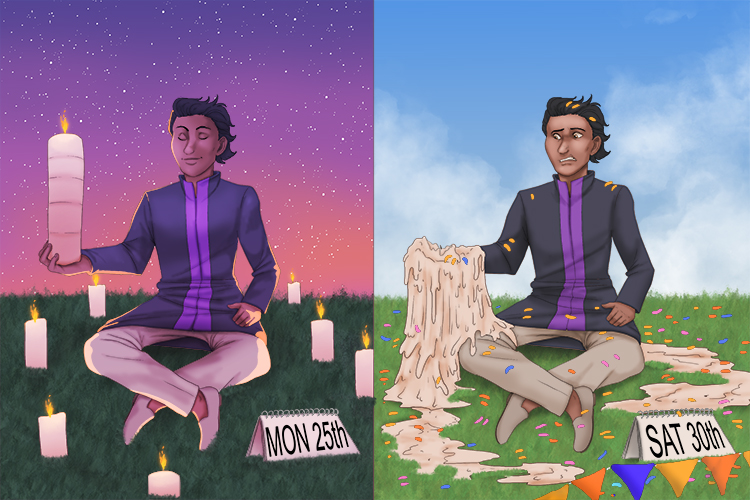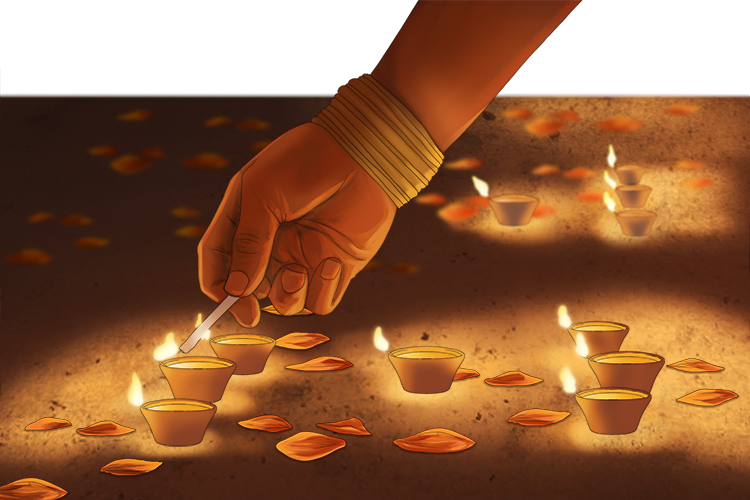Diwali – The five-day festival of lights celebrated each year by Hindus, Jains, Sikhs and some Buddhists
(Pronounced duh-wah-lee)
To remember the meaning of the Hindu term Diwali, use the following mnemonic:
At dusk they lit wax candles and didn't leave (Diwali) until five days of celebrations were over.

Diwali, which means "row of lights", is a celebration of the victory of light over darkness.
It is not exclusively a Hindu event – Jains (followers of Jainism) and Sikhs also celebrate Diwali.
For Hindus, the most widespread custom is the lighting of small earthenware lamps filled with oil, called diyas, on the night of the new moon. This custom is believed to invite the presence of Lakshmi, the goddess of wealth. However, different gods and goddesses feature in different countries and regions as Hindus all over the world join in the celebrations.

Generally, the five days are organised as follows:
- Day one, known as Dhanteras, is spent cleaning homes and purchasing small items of gold. Lakshmi is the focus of worship on that day.
- Day two, called Naraka Chaturdashi or Choti Diwali, includes a celebration of Krishna’s killing of Narakasura, a mythical wicked king, and prayers are offered for the souls of ancestors.
- Day three, Lakshmi Puja, is the main day of the festival, when families ask for blessings from Lakshmi to ensure prosperity. Diyas, candles, and fireworks are lit and temples are visited.
- Day four – known as Goverdhan Puja, Balipratipada, or Annakut – commemorates Krishna’s defeat of Indra, the king of the gods.
- Day five, called Bhai Dooj, Bhai Tika, or Bhai Bij, is mostly a celebration of the bond between brothers and sisters. Sisters pray for the success and well-being of their brothers.




